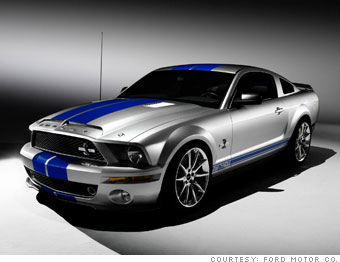The reason the Mustang has done so well over more than four decades of production, said Motor Trend Detroit editor Todd Lassa, is that it appeals to a wider audience than its competitors. Mustangs sell to those looking for performance as well as those just looking for an inexpensive cool car.
That's not to say that there isn't a market for extreme performance versions. In 2008, Ford will introduce the GT500KR powered by a 5.4-liter, 540-horsepower, V8 engine. You won't see many of these on the road, though. Ford will only sell 1,000 of them.
Because these cars command high prices, engineers have more freedom to experiment with new ways to reduce weight and get more power out the engine.
"We are using the same tech for performance gain and weight reduction that our smaller cars will use for fuel economy," said Jamal Hameedi, Ford's chief engineer for performance cars.
For instance, the use of lightweight aluminum instead of steel for various parts was pioneered in performance cars. Also, "forced induction" to boost engine power, like the superchargers used in Shelby cars, will become more common as car companies turn to smaller engines to save fuel.

